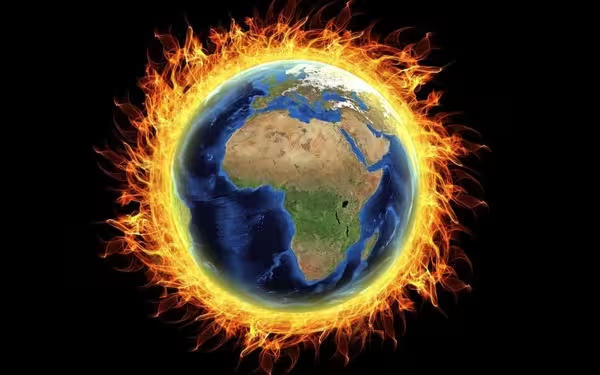Tuesday, July 2, 2024 03:07 PM
Red Cross Warns of Deadly Heatwaves
- 26 additional days of extreme heat due to climate change
- 6.3 billion people endured at least 31 days of extreme heat
- Tens of thousands of deaths attributed to extreme heat events
 Image Credits: tribune_pk
Image Credits: tribune_pkThe world faces a surge in extreme heat events, with devastating impacts on human health and the environment. Urgent global action is needed to address climate change and protect future generations.
Over the past year, the world has experienced a surge in extreme heat events, with an average of 26 additional days of extreme heat attributed to climate change. This increase in temperatures has led to more frequent and intense extreme weather phenomena worldwide. A recent study analyzed data from 1991 to 2020 to identify temperature thresholds in the top 10 percent for each country. By examining temperatures from the previous 12 months, researchers found that climate change played a significant role in the occurrence of excessively hot days.
2023 has been declared the hottest year on record, with extreme heatwaves impacting regions from Mexico to Pakistan. Approximately 6.3 billion people, representing around 80 percent of the global population, endured at least 31 days of extreme heat in the past year. A total of 76 extreme heatwaves were recorded across 90 countries on all continents except Antarctica.
The report emphasized the stark contrast in extreme heat days that countries would have experienced without the influence of climate change. For example, Suriname would have had 24 extreme heat days instead of 182, Ecuador 10 instead of 180, Guyana 33 instead of 174, El Salvador 15 instead of 163, and Panama 12 instead of 149. The impact of extreme heat on human health was underscored, with tens of thousands of deaths attributed to these events in the past year, a number that could potentially be much higher.
While flooding and hurricanes often grab headlines, the deadly consequences of extreme heat should not be underestimated. Jagan Chapagain, the secretary general of the International Federation of the Red Cross, highlighted the lethal nature of extreme heat and its significant toll on human lives.
As the world grapples with the escalating impacts of climate change, the rise in extreme heat events serves as a stark reminder of the urgent need for global action. The devastating effects of extreme heatwaves on both human health and the environment underscore the critical importance of addressing climate change through sustainable practices and policies. It is imperative that individuals, communities, and governments work together to mitigate the impacts of rising temperatures and protect the planet for future generations.













